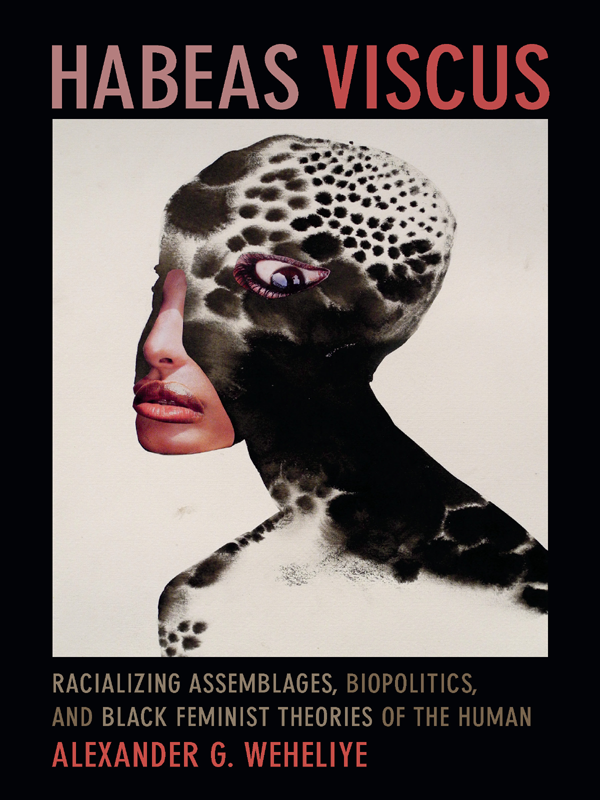Marina Gržinić (ed.): Border Thinking: Disassembling Histories of Racialized Violence (2018)
Filed under book | Tags: · borders, europe, immigration, migration, necropolitics, politics, race, racialization, racism, refugees

“Border Thinking: Disassembling Histories of Racialized Violence aims to question and provide answers to current border issues in Europe. Central to this investigation is a refugee crisis that is primarily a crisis of global Western capitalism and its components: modernization, nationalism, structural racism, dispossession, and social, political, and economic violence.
In this volume, these notions and conditions are connected with the concept of borders, which seems to have disappeared as a function of the global neoliberal economy but is palpably reappearing again and again through deportations, segregations, and war. How can we think about these relations in an open way, beyond borders? Is it possible to develop border thinking for a radical transformation, as a means to revolutionize the state of things? To do this, we must reconsider what is possible for the social and the political as well as for art and culture.”
With contributions by Ilya Budraitskis, Maira Enesi Caixeta, C.A.S.I.T.A., Yuderkys Espinosa Miñoso, Miguel González Cabezas, Marina Gržinić, Juan Guardiola, Çetin Gürer, Neda Hosseinyar, Njideka Stephanie Iroh, Adla Isanović, Fieke Jansen, Tjaša Kancler, Zoltán Kékesi, Betül Seyma Küpeli, Gergana Mineva, Musawenkosi Ndlovu, Stanimir Panayotov, Suvendrini Perera, Jelena Petrović, Khaled Ramadan, Rubia Salgado, Marika Schmiedt, Joshua Simon, Aneta Stojnić, Shirley Anne Tate, Göksun Yazıcı, Hiroshi Yoshioka.
Publisher Sternberg Press, Berlin, 2018
Publication Series of the Academy of Fine Arts Vienna, 21
ISBN 9783956793837
308 pages
via AkBild Vienna
Alexander G. Weheliye: Habeas Viscus: Racializing Assemblages, Biopolitics, and Black Feminist Theories of the Human (2014)
Filed under book | Tags: · assemblage, bare life, biopolitics, black people, feminism, freedom, human, property, race, racialization, racism, slavery, theory

“Habeas Viscus focuses attention on the centrality of race to notions of the human. Alexander G. Weheliye develops a theory of ‘racializing assemblages,’ taking race as a set of sociopolitical processes that discipline humanity into full humans, not-quite-humans, and nonhumans. This disciplining, while not biological per se, frequently depends on anchoring political hierarchies in human flesh. The work of the black feminist scholars Hortense Spillers and Sylvia Wynter is vital to Weheliye’s argument. Particularly significant are their contributions to the intellectual project of black studies vis-à-vis racialization and the category of the human in western modernity. Wynter and Spillers configure black studies as an endeavor to disrupt the governing conception of humanity as synonymous with white, western man. Weheliye posits black feminist theories of modern humanity as useful correctives to the ‘bare life and biopolitics discourse’ exemplified by the works of Giorgio Agamben and Michel Foucault, which, Weheliye contends, vastly underestimate the conceptual and political significance of race in constructions of the human. Habeas Viscus reveals the pressing need to make the insights of black studies and black feminism foundational to the study of modern humanity.”
Publisher Duke University Press, Durham, 2014
ISBN 9780822356912, 0822356910
x+209 pages
Reviews: Ashon Crawley (LARB, 2015), Marianna Szczygielska (Parallax, 2015), Aditi Surie von Czechowski (Comp Stud South Asia, Africa and Middle East, 2015), Marianela Munoz and Charles Holm (Afro-Paradise, 2015), Megan H. Glick (Hypatia Rev, 2015), Shelleen Greene (Somatechnics, 2016), Amber Jamilla Musser (philoSOPHIA, 2016), Gabriela Radulescu (Allegra Lab, 2016), Ander Mendiguren Nebreda (Athenea Digital, 2017, ES).
Comment (0)
